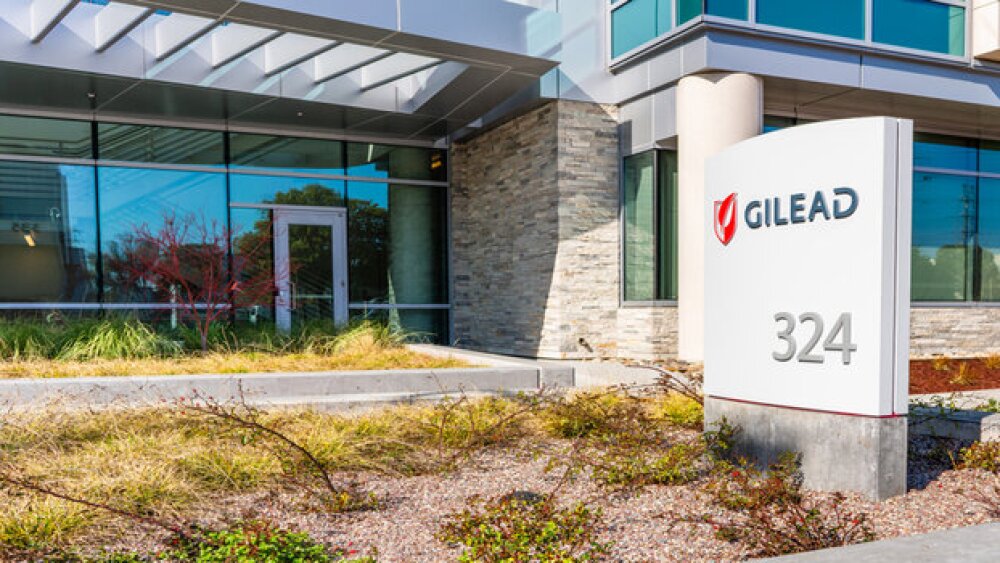Gilead Sciences and Arcus Biosciences have amended their collaboration agreement in an effort to accelerate an anti-TIGIT program, the companies announced Monday.
Pictured: Gilead signage outside its office in California/iStock, Sundry Photography
Gilead Sciences and Arcus Biosciences have amended their collaboration agreement, the companies announced Monday, with Gilead making an additional equity investment of $320 million and raising its ownership stake in Arcus to 33%.
Gilead’s separate equity investment of $320 million will be in Arcus common stock at $21 per share. The deal will also see Gilead Chief Commercial Officer Johanna Mercier join Arcus’ board, marking a third Gilead member. According to Monday’s announcement, the amendment to the companies’ partnership will include “governance enhancements” to help make “streamlined decision-making” as well.
Under the agreement, Gilead and Arcus have reprioritized their joint domvanalimab development program, an anti-TIGIT antibody. They will focus on advancing and possibly accelerating Phase III studies of STAR-121, which investigates lung cancer treatment, and STAR-221 for gastrointestinal cancer.
Gilead and Arcus expect these programs to be fully enrolled by the end of 2024. Their prioritization focuses on domvanalimab-contaning regimen research, where they contend it may have a “significant impact” in combination with chemo treatment and where there is a high unmet need. The companies also plan to start the STAR-131 trial, a Phase III lung cancer study that combines domvanalimab and Arcus’ zimberelimab.
However, the updates include halting the Phase III ARC-10 study investigating domvanalimab and zimberelimab compared to a Keytruda monotherapy in PD-L1-high non-small cell lung cancer. The reason for the stop is to prioritize STAR-121 and STAR-221.
“This amendment allows Gilead to accelerate the domvanalimab program and enables Arcus to focus on progressing multiple pipeline assets, including both Gilead-optioned and non-optioned programs,” Gilead CMO Merdad Parsey said in a statement. “We look forward to strengthening our collaboration as we explore the collective power of our cross-portfolio combinations to help transform how cancer is treated.”
Arcus CEO Terry Rosen said the Gilead investment will give the biotech enough cash to last into 2027 and enable it to fund the Phase III study of the CD73 inhibitor quemliclustat in pancreatic cancer and the asset AB521 in kidney cancer. The quemliclustat trial will be run by Arcus independently as part of the new arrangement.
“Since the inception of our partnership with Gilead in 2020, the companies have moved increasingly closer in all aspects of our research and development efforts. This investment and prioritization enable both companies to leverage their respective strengths and focus on efficiently advancing novel combinations that can potentially change the landscape of cancer treatment,” Rosen said in a statement.
In November 2023, Arcus and Gilead reported positive results for the combination of domvanalimab, zimberelimab, and chemotherapy in treating upper gastrointestinal cancers, showing an overall response rate of 80% in patients with PD-L1-high tumors.
Tyler Patchen is a staff writer at BioSpace. You can reach him at tyler.patchen@biospace.com. Follow him on LinkedIn.






